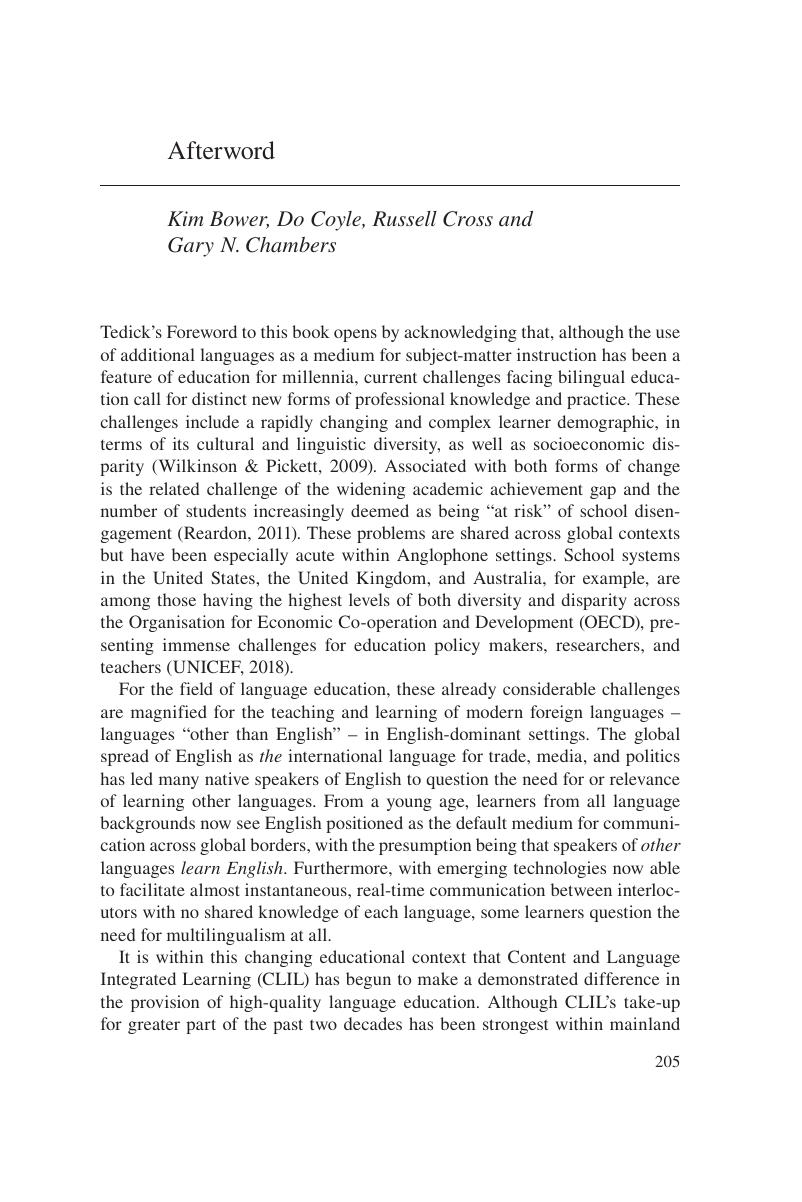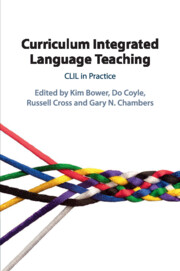Book contents
- Curriculum Integrated Language Teaching
- Curriculum Integrated Language Teaching
- Copyright page
- Contents
- Figures
- Tables
- Contributors
- Foreword
- Preface
- Acknowledgements
- Part I The Educational Context for CLIL
- Part II Current Aspects of Practice in CLIL
- Part III New Knowledge and Future Directions
- Afterword
- Index
- References
Afterword
Published online by Cambridge University Press: 27 July 2020
- Curriculum Integrated Language Teaching
- Curriculum Integrated Language Teaching
- Copyright page
- Contents
- Figures
- Tables
- Contributors
- Foreword
- Preface
- Acknowledgements
- Part I The Educational Context for CLIL
- Part II Current Aspects of Practice in CLIL
- Part III New Knowledge and Future Directions
- Afterword
- Index
- References
Summary

- Type
- Chapter
- Information
- Curriculum Integrated Language TeachingCLIL in Practice, pp. 205 - 210Publisher: Cambridge University PressPrint publication year: 2020



